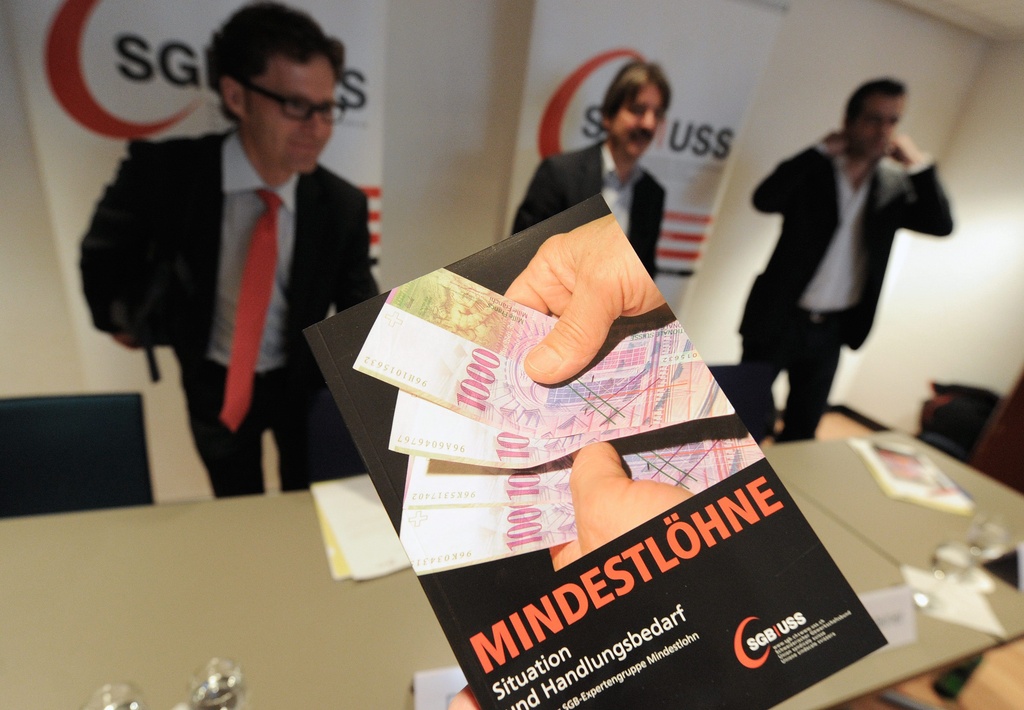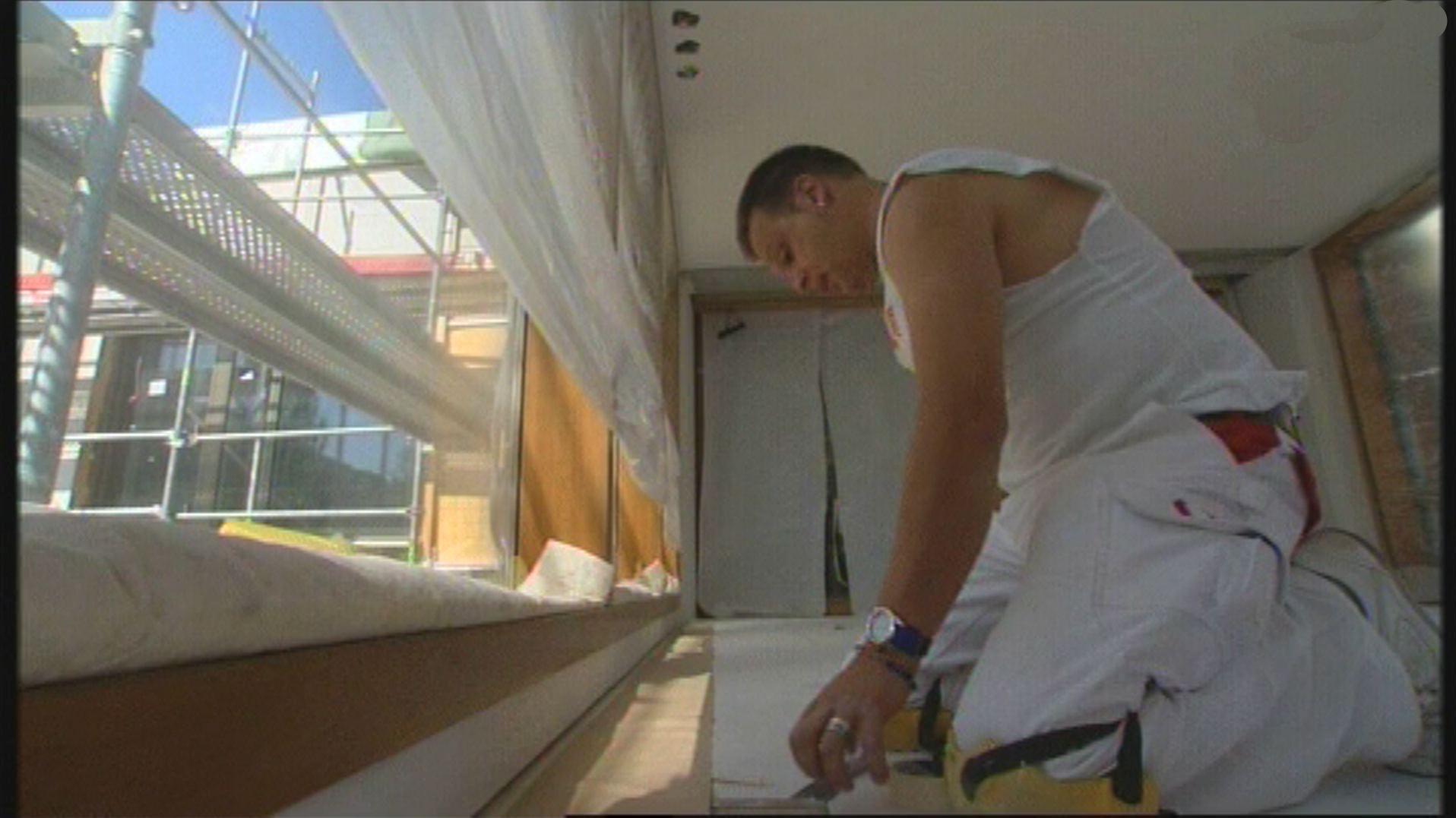Swiss shadow economy reveals its bright side

The Swiss government loses around SFr2 billion ($2.18 billion) in revenue a year through its underground economy, but there’s also a positive side, an expert says.
Switzerland’s shadow economy represents around 7.6 per cent of gross domestic product (GDP), or SFr34.6 billion, in 2012, according to Friedrich Schneider, an economics professor and illegal employment expert from Austria’s Johannes Kepler University.
There are around 460,000 people who work full-time without declaring work they do. Schneider tells swissinfo.ch about the little-known phenomenon.
swissinfo.ch: How do you define the term shadow economy in 2012?
Friedrich Schneider: It is precisely the same meaning as I gave in 2000: the production of legal goods and services not on the books; or hidden from the state authorities. These are value-added activities that are supposedly calculated in the GDP figures.
swissinfo.ch: So, we are talking about assets from unreported work related to legal services and goods, but also about illegal activities, such as trading in stolen goods and prostitution?
F.S: If you repair a car in your garage which is not accounted for, it is a legal activity that creates added value. What is illegal is that you avoid taxes and social security contributions.
And yes, there are also illegal activities, in particular in the case of prostitution. It is legal in some countries and illegal in others, but it is mostly carried out off the books or in the shadows.
swissinfo.ch: According to your investigations, Switzerland has around 69,000 illegal foreign workers, but 460,000 people who work full-time without declaring work they do. How did you reach this conclusion?
F.S: The figure of 69,000 illegal foreign workers is roughly correct. The 460,000 workers do not exist in reality. It is a fictional calculation. It’s a better way of understanding the phenomenon instead of saying a total number of working hours.
swissinfo.ch: So if we added up the total number of undeclared worked hours we would get the equivalent of 460,000 people working full-time without being declared. Should the Swiss authorities be concerned?
F.S: No, it is not very much. It is a tiny fraction of the workforce. It is the sum of all hours worked illegally calculated in full-time jobs. In a normal example, a Swiss worker is a part-time shadow economy worker, who spends four to six weekly hours of his free time in the shadow economy.
swissinfo.ch: Is there a huge gap in wages between declared and undeclared work?
F.S: No, there is almost no difference. The average net income [income after taxes] for an official and a shadow worker is very similar.
It might be a bit lower in the second case, but not much; even after avoiding taxes, the wage is roughly the same.
There might be some extreme cases, for example, when a job is connected with organised crime or prostitution, but that’s exceptional.
swissinfo.ch: The shadow economy always represents a fiscal hole for authorities. How big is it for Switzerland?
F.S: The yearly Swiss government losses are around SFr2billion, including social security contributions and lost tax revenue.
swissinfo.ch: What are some of the positive sides of the shadow economy, which you describe in your research?
F.S: Two-thirds of the produced income is spent in the official economy, which boosts national economic growth and amasses value-added tax and it makes up for at least part of the lost revenues.
But government and institutions are the big losers in taxes and social contributions. It is important to remember that the shadow economy is not a black or white picture.
swissinfo.ch: Your research on Switzerland indicates that the law against the shadow economy, which has been in effect since 2008, has had a positive result here. Can we conclude that more inspectors, company controls and simplified recruitment procedures have helped reduce the number of undeclared jobs?
F.S: Yes, it is part of the reasons why the Swiss shadow economy has decreased from a total value of SFr39.5billion in 2004 to SFr34.6billion in 2012.
Two reports presented in March by Friedrich Schneider showed that Switzerland’s underground economy represents the equivalent of 7.6% of gross domestic product (GDP) for 2012.
This is below the 19.2% average of 31 European economies studied – which include Germany (13.5%), France (11%), Spain (19.2%), Britain (10.5%), Italy (21.6%) and Portugal (19.4%).
Switzerland introduced a law in 2008 to clamp down on people conducting undeclared work. This made administrative procedures easier for declaring insurance contributions and paying taxes. At the same time it strengthened inspection controls at cantonal and national levels.
Under the new law, punishments for employers found using illegal workers became tougher. In construction and agriculture – two sectors particularly affected – they included exclusion from public tenders and cuts in farming subsidies.
Fines of up to SFr1 million could be imposed as well as prison sentences of up to five years.
In 2004 Switzerland’s shadow economy was valued at SFr39.5 billion, in 2007 it stood at SFr36.8 billion and this year is estimated to be SFr34.6 billion.
The State Secretariat for Economic Affairs (Seco) says this drop is down to Switzerland’s good economic situation that favours legal employment.
But it rejects the idea that the shadow economy can have positive effects. “Those affected lack social security cover,” said Seco director Serge Gaillard. “If illegal contracting becomes the norm in one sector firms would find it very difficult to employ anyone legally.”
(Translated from Spanish by Simon Bradley)

In compliance with the JTI standards
More: SWI swissinfo.ch certified by the Journalism Trust Initiative




You can find an overview of ongoing debates with our journalists here. Please join us!
If you want to start a conversation about a topic raised in this article or want to report factual errors, email us at english@swissinfo.ch.